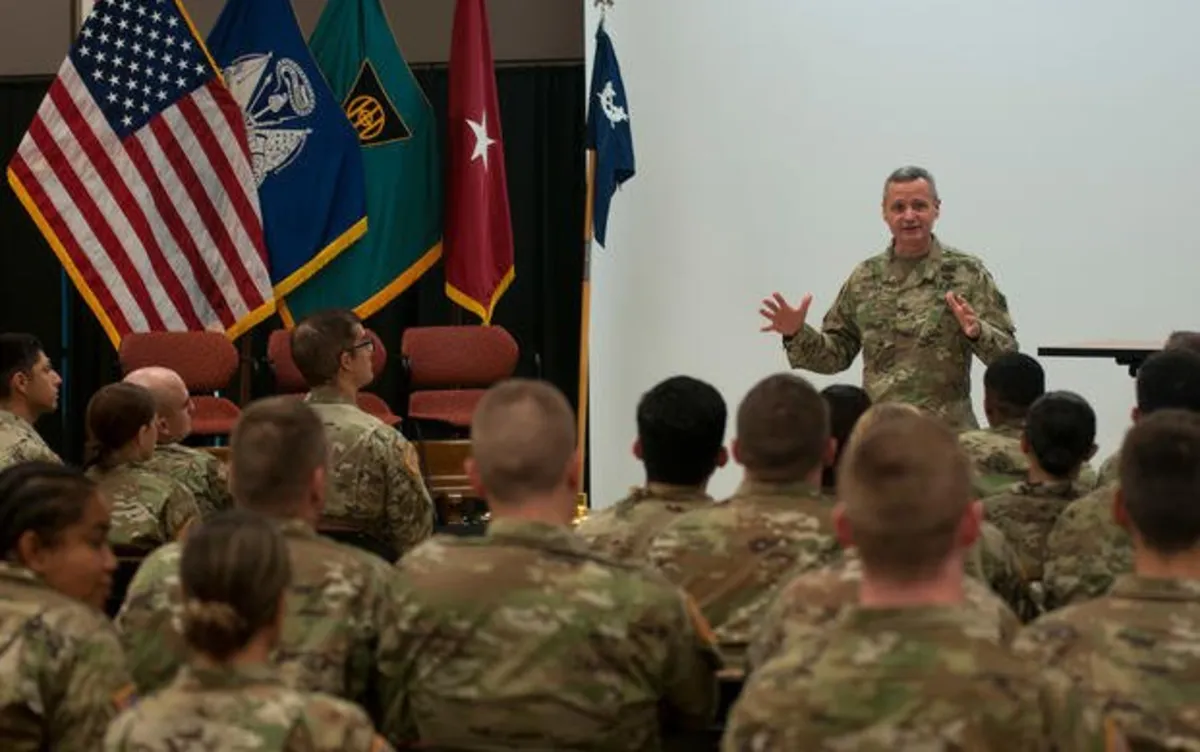
Current military lawyers and legal experts have expressed alarm over the recent firings of the Air Force, Army, and Navy's top judge advocates general. They argue that this move sets a concerning precedent, especially as President Donald Trump has previously discussed using the military in unconventional and potentially illegal ways.
On a late Friday evening, President Trump and Defense Secretary Pete Hegseth announced the dismissal of the top legal officers responsible for ensuring the Uniform Code of Military Justice is followed. This includes the Joint Chiefs chairman, the Navy's top officer, and the Air Force vice chief.
The purge of judge advocates general saw the removal of Air Force Lt. Gen. Charles Plummer and Army Lt. Gen. Joseph Berger. Meanwhile, Navy Rear Adm. Lia Reynolds continues in her role after Vice Adm. Christopher French's resignation late last year.
Hegseth justified the removals, stating they were necessary to prevent any roadblocks to orders from the commander in chief. These senior judge advocates general (JAGs) have historically played an apolitical role, setting each service's legal priorities and interpreting military law.
However, the specific orders these top lawyers might block were not elaborated upon. Trump has a history of advocating for using troops to enforce federal laws, especially in cities governed by Democratic mayors.
An Air Force JAG officer expressed concerns that the removal of these officials harms those in uniform by stripping away institutional knowledge, potentially replacing them with inexperienced lawyers. The officer highlighted fears within the community about who might fill these roles next.
Hegseth hinted that the military might consider non-traditional choices for the JAG posts, similar to the appointment of Dan Razin Caine as Joint Chiefs chairman, despite his lack of experience leading a combatant command.
The Air Force JAG officer warned that the military justice system could become politicized, creating an uncomfortable position for uniformed lawyers under different political administrations. Concerns have been raised that following Trump's guidance could lead to future dismissals under a new administration.
Trump's history of suggesting that troops be used against U.S. citizens adds to the worries of potential misuse of the military and bending of the law.
Retired Maj. Gen. Charles Dunlap Jr. emphasized the importance of military lawyers providing nonpartisan, expert legal advice. He highlighted the international reputation of U.S. military lawyers for their expertise and integrity.
Former Air Force Secretary Frank Kendall expressed his concern over the widespread dismissals, particularly of top legal officers, in a New York Times op-ed. He described their removal as part of an attack on the rule of law.
Some allies of the administration, including Tim Parlatore, a former Navy officer and lawyer, argued that the move could help restore the Navy's legal command's reputation. Parlatore cited issues with the leadership of previous heads of the Navy's JAG office.
Despite these claims, experts like Dunlap warned that the nonpartisan nature of the military's judge advocates general has often been a role model for other nations, and their removal could strain relations with allies.
In conclusion, the mass firings of top military legal officers have sparked significant concern among military legal experts and allies, raising questions about the future of the military justice system and its potential politicization.